
Eleventh summary – Wild Freedom
N 47°55'228'' E 106°54'881''
Day: 442
Sunrise:
07:01
Sunset:
18:17
Total kilometers:
2925
Soil condition:
Asphalt
Temperature – Day (maximum):
20 °C
Temperature – day (minimum):
14 °C
Temperature – Night:
minus 3 °C
Latitude:
47°55’228”
Longitude:
106°54’881”
Maximum height:
1267 m above sea level
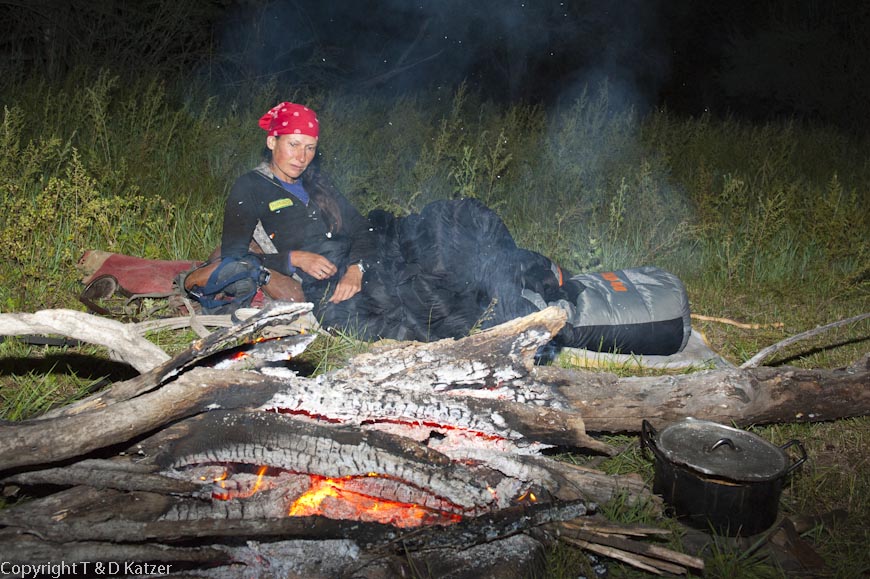
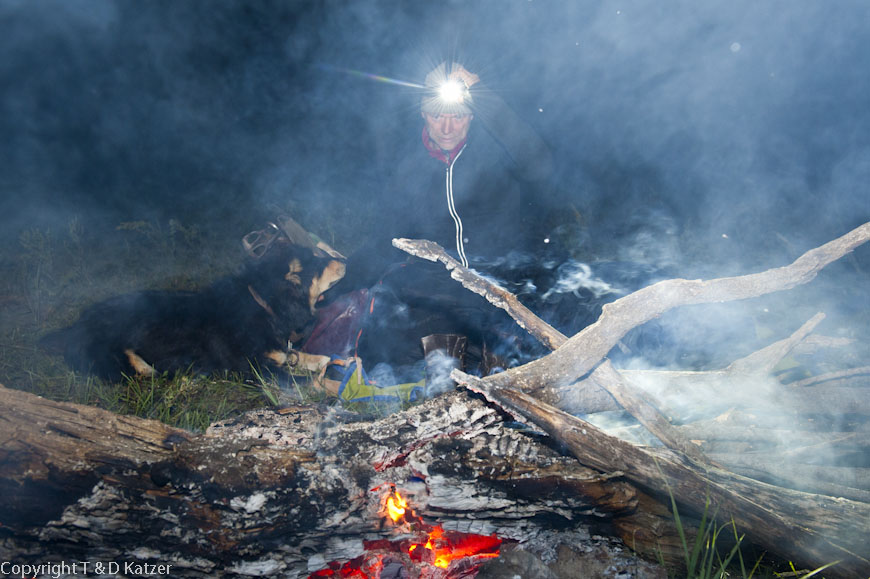
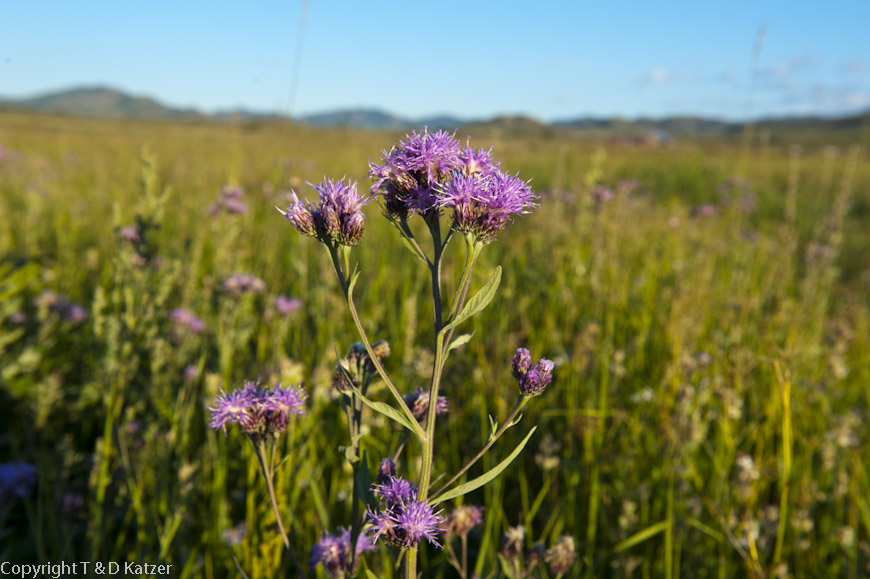
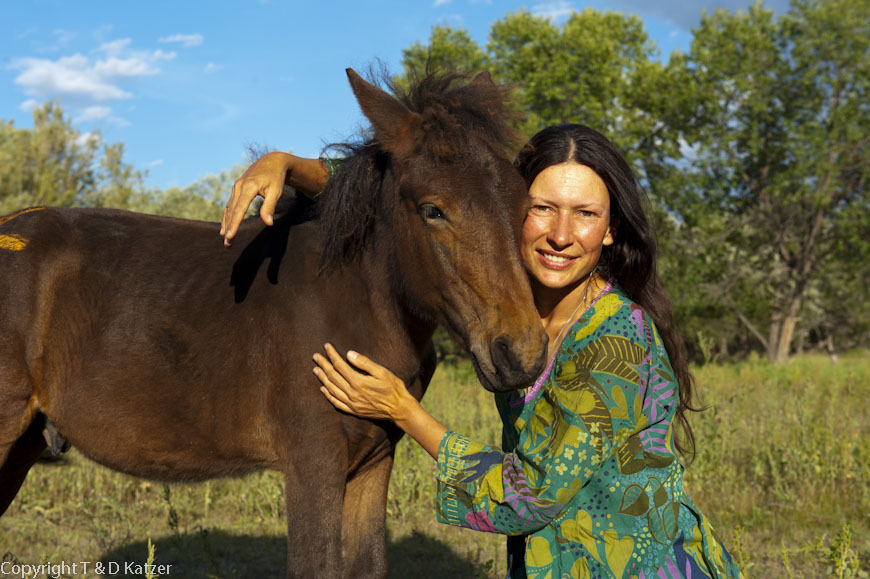
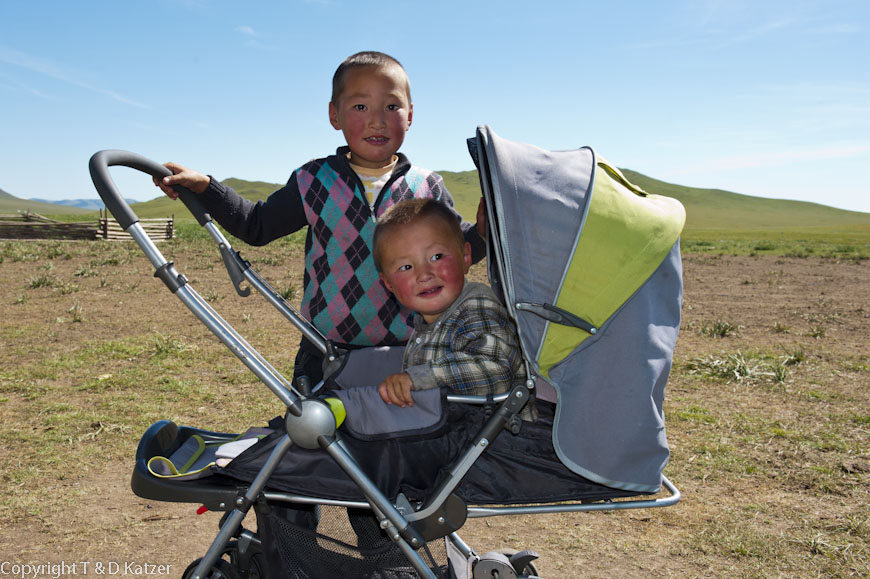
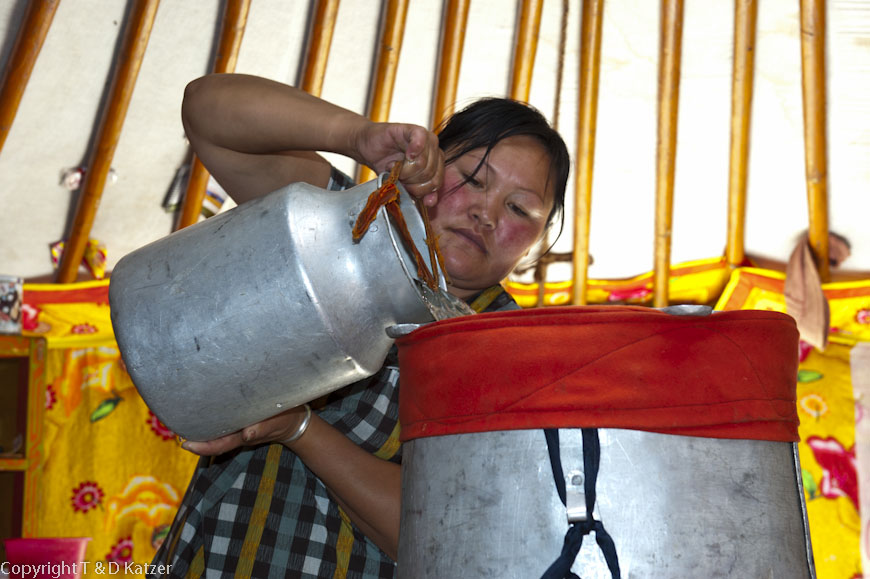


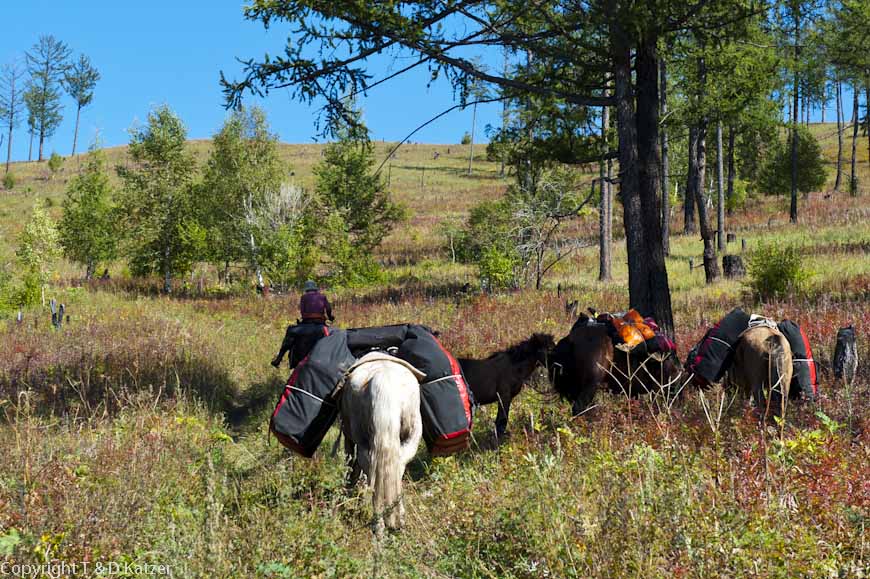


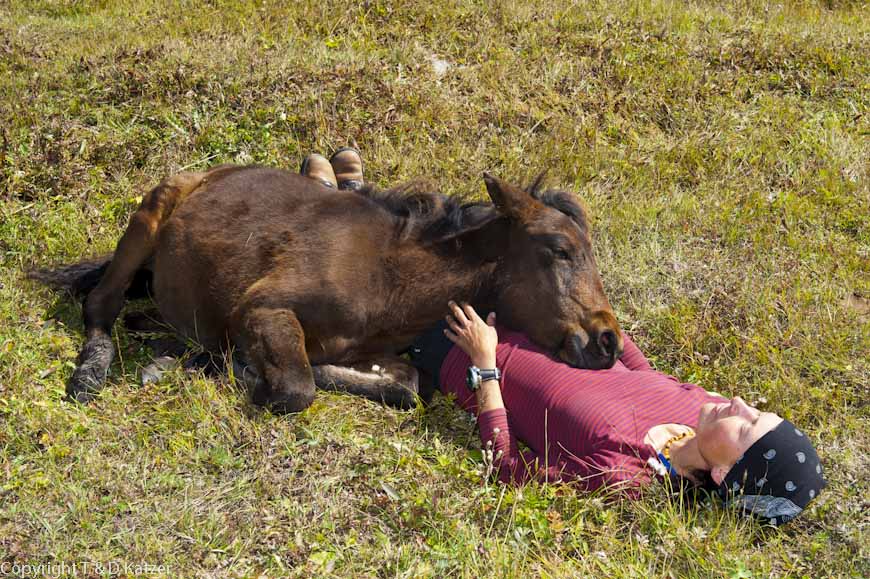
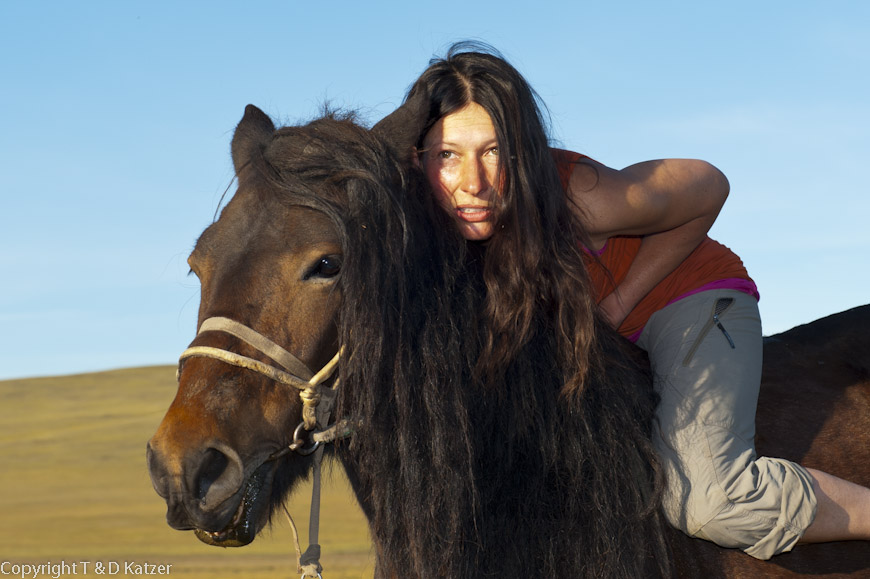
Before we left the peaceful valley where we had stayed for so long, a monk blessed the rest of our journey. Then we said goodbye to Renjindorj and Ilchelaugsuren’s family and loaded our four heavy duffel bags and courier bags onto the horses. We made slow progress for the first few kilometers because the load kept slipping. The always shy Tenger in particular caused difficulties after the long break. But even little Tuya didn’t know what to do with his strength, he kept jumping at his colleagues, kicking them and Mogi. If he had had wings, he would have loved to pounce on anything that moved.
Because we were still warned about horse thieves, we kept up our tried and tested guard system. Extreme caution was required, especially in the vicinity of towns such as Mörön. We made very good progress, often covering 40 km or more a day. We didn’t always find camps with wells or a stream to water our horses. The important search for water alone therefore determined the length of the daily rides. On some days it rained incessantly, and strong autumn winds were a nuisance. The days, especially the nights, became noticeably cooler. The weather was changeable but we had a wonderful, unforgettable time. Even if it was a bit scary some nights when dogs or a wolf howled or we thought we were being haunted by horse thieves again, the days and weeks were characterized by an extremely intense feeling of life. We realized that travelling alone had its advantages, because we didn’t have to adjust to a companion, prepare different food or discuss whether the grass in that place was good or bad, whether the campsite on the other side of the stream was better than on this side.
For a whole five days we enjoyed the dream camp on the Selenge River, which we called our hidden glade. The flood-fed river flowed past on the eastern side. To the west and north, our camp site was bordered by a steeply sloping rock formation and to the south a wall of bushes and trees grew. In the middle was the most wonderful grass on which our increasingly fat mounts feasted until they lay down, moaning and stretching their bellies into the sun. In the morning Tanja prepared pancakes for me and in the evening we warmed ourselves around the campfire.
We trotted through endless valleys, over 1,700 m high passes and across huge green spaces with grass stretching waist-high into the cloudy sky. In the evening, the sun sank at the end of a valley, coloring the sky blood red where it seemed to touch the mountains. Further up, the strong color faded to a golden band, which in turn was replaced by a bright goblin blue interspersed with glittering stars. Then the darkness descended completely over the valley. The Milky Way shone down on us between the floating cloud towers as if the billions of points were connected to the power supply. We enjoyed such moments and inhaled life.
Above all, we experienced more than ever the much-described hospitality of Mongolia. We were invited to eat horse meat and fermented mare’s milk. Sometimes my stomach was overwhelmed by the unfamiliar and high-fat food, sometimes I thought I was going to fall seriously ill because of the unimaginably unhygienic conditions, but we survived. What remains are the mostly positive memories.
But as life in Mongolia goes, it was characterized by ups and downs. The apparently normal pulse of human life. We were shocked when Tenger suddenly threw up. He had obviously put something wrong down his gullet. We were worried about him and were glad when the colic was over the following day. Then Tanja unfortunately slipped off her horse and hit her ankle on a stone. “I think it’s splintered,” her shaky explanation rattled my limbs. I feverishly struggled to find a solution, thinking about how I could get Tanja to a hospital and who should look after the horses and our camp in the meantime. Fortunately, Tanja was able to walk with a limp and even ride a horse. Although it was very painful, we made progress.
On the pass summits, the first larch trees were already showing their autumn colors. The frosty nights took their toll on the grass and the many flowers. The last mountain ridge to be crossed was covered with a colorful meadow of flowers. Extremely succulent plants, up to one meter tall, stretched upwards as if they wanted to defy the approaching winter. Our horses couldn’t get enough of it and enjoyed nature’s first-class cuisine to no end. “This beautiful mountain path and the blue sky is a farewell gift to us!” I exclaimed in high spirits. “Yes, Mother Earth knows what we like!” Tanja replied with a laugh. The slightly yellowing needles of the larches heralded a magnificent fall color. At the top of the summit, the view of the valleys was breathtaking. We paused for a few minutes and enjoyed the distant view over the mountain landscape. After we had had our fill, we steered our steeds back down into the valley on the other side of the ridge. The valley from which we set off a year and a day ago with Bilgee and Ultzii.
We look forward to your comments!

